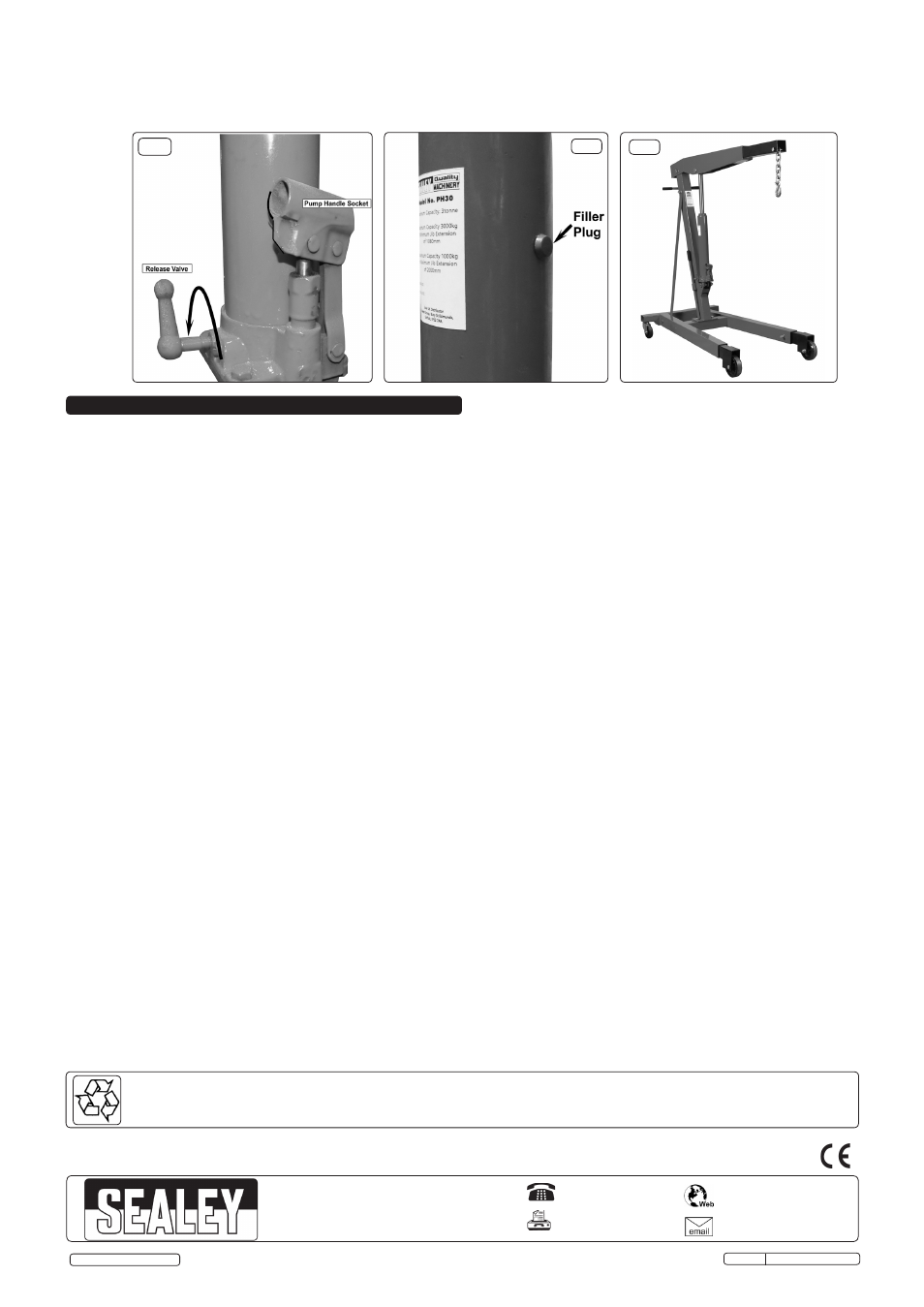Owner’s & operator’s responsibilities – Sealey PH30 User Manual
Page 3

page
3
The owner and/or operator shall study these instructions and retain them for future use.
a)
Understanding instructions and warnings.
The owner and/or operator shall understand the operating instructions and warnings before operating the crane.
Warning information must be emphasised and understood.
If the operator is not fluent in English, the product instructions and warnings must be read to, and discussed with, the operator in the
operator’s native language by the owner, making sure the operator understands the contents.
b)
Damaged Cranes.
Any crane which appears to be damaged, badly worn, or operates abnormally
MUST BE REMOVED FROM SERVICE! It is
recommended that necessary repairs be made by an authorised service agent.
c)
End of service.
Through years of normal wear, the crane will eventually become unserviceable.
When this happens ensure the hydraulic oil is drained off and disposed of in accordance with local authority regulations.
d)
STORAGE.
Always store the crane fully closed so that the jib is in lowest position and the ram is closed.
7. OWNER’S & OPERATOR’S RESPONSIBILITIES
Environmental Protection.
Recycle unwanted materials instead of disposing of them as waste. All tools, accessories and packaging should be sorted, taken to a recycle centre
and disposed of in a manner which is compatible with the environment.
fig.2
fig.2
fig.2
fig.3
fig.1
NOTE: It is our policy to continually improve products and as such we reserve the right to alter data, specifications and component parts without prior notice.
IMPORTANT: No liability is accepted for incorrect use of this product.
WARRANTY: Guarantee is 12 months from purchase date, proof of which will be required for any claim.
01284 757500
01284 703534
Sole UK Distributor, Sealey Group,
Kempson Way, Suffolk Business Park
,
Bury St. Edmunds, Suffolk,
IP32 7AR
www.sealey.co.uk
EXAMINATION:
Verification that the crane can continue safely in service including a functional test of all safety devices i.e. limiting, indicating
equipment, brakes, clutches, safety valves etc to verify that they operate within the required tolerances. An examination is more
thorough than an inspection.
Original Language Version
PH30 Issue: 2(I) - 08/12/14
© Jack Sealey Limited